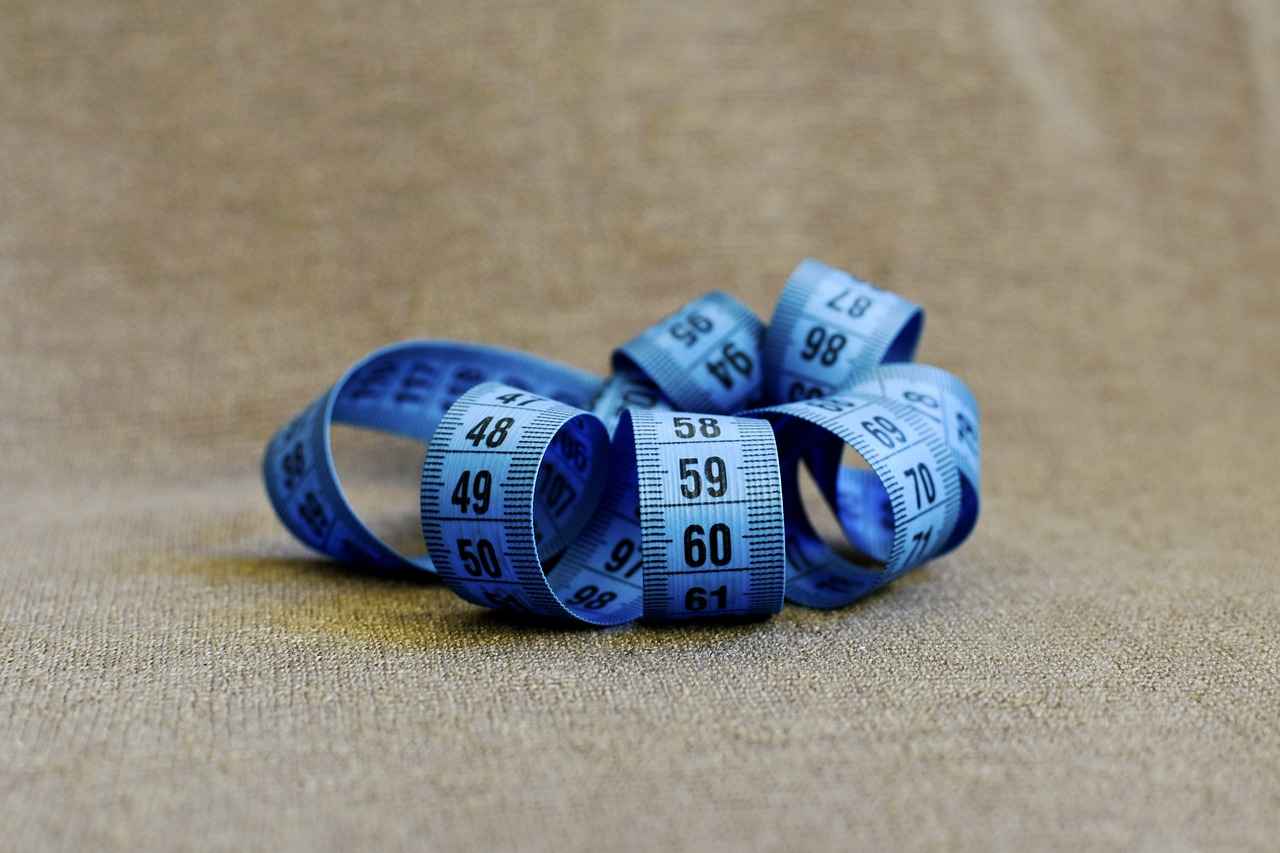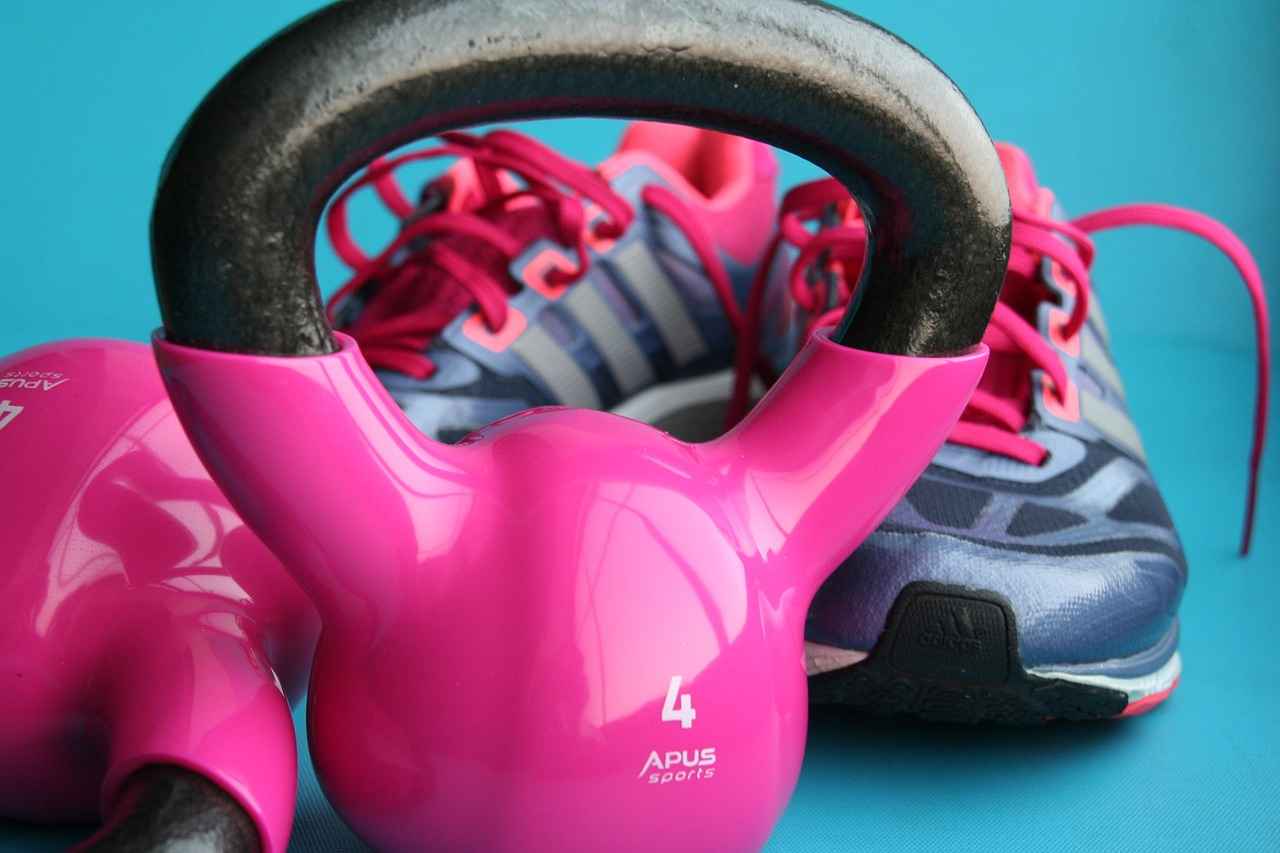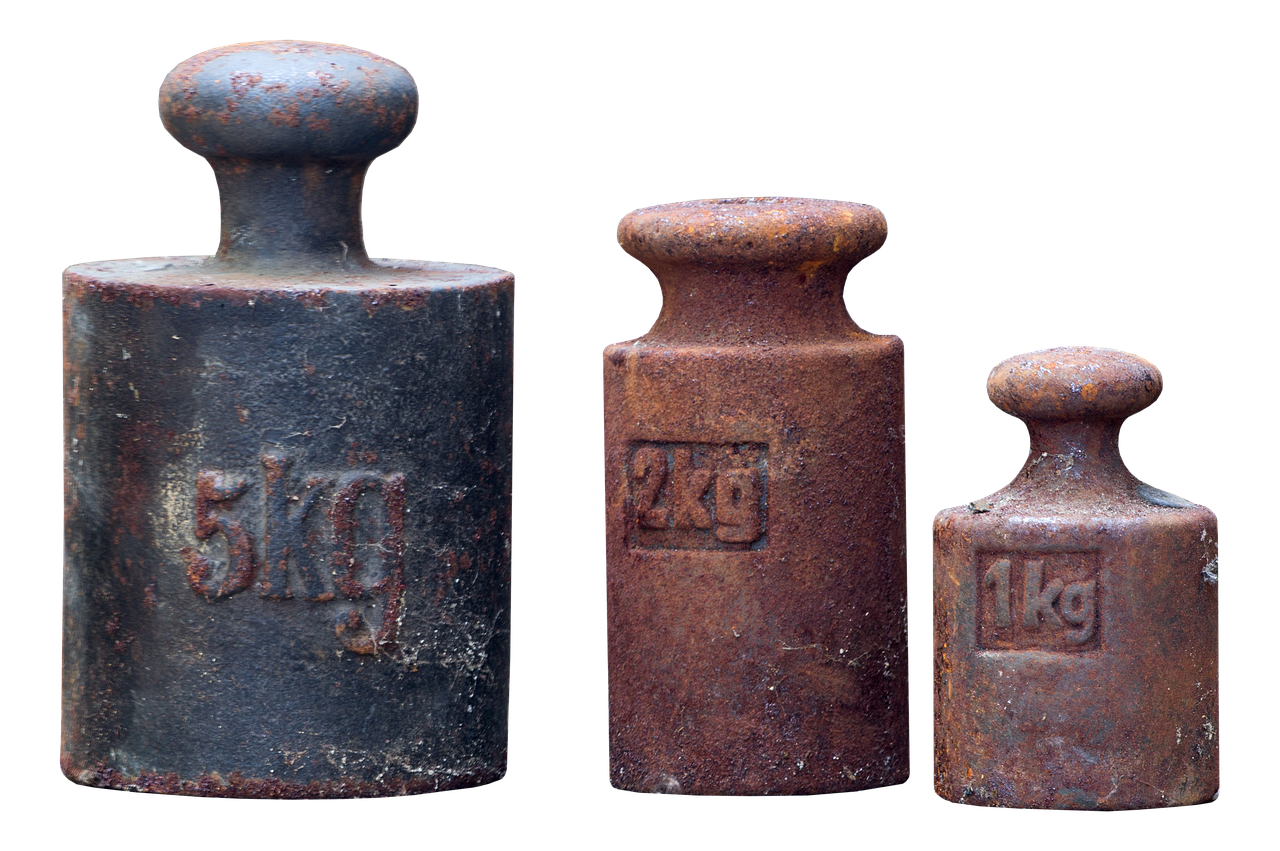Understanding how to convert weight from pounds to kilograms is a valuable skill that can simplify many daily activities. Whether you’re cooking, traveling, or monitoring your health, knowing how to perform this conversion can enhance your experience. In this article, we will explore the straightforward methods to convert 145 pounds to kilograms, ensuring you can apply this knowledge with ease.
What Is the Basic Conversion Formula from Pounds to Kilograms?
The basic formula for converting pounds to kilograms is quite simple. To convert any weight in pounds to kilograms, you multiply the weight by 0.453592. This conversion factor is derived from the fact that one pound is approximately equal to 0.453592 kilograms. Understanding this formula is essential for quick and accurate calculations.
How Do You Convert 145 Pounds to Kilograms?
To convert 145 pounds to kilograms, you can follow these easy steps:
- Step 1: Identify the weight in pounds, which in this case is 145 lbs.
- Step 2: Multiply 145 by the conversion factor 0.453592.
So, the calculation would look like this:
145 lbs * 0.453592 65.770 kg
Thus, 145 pounds is approximately equal to 65.77 kilograms. This straightforward process makes it easy to convert weights in no time.
Why Is It Important to Know How to Convert Pounds to Kilograms?
Knowing how to convert pounds to kilograms is crucial for several reasons. Firstly, many countries use the metric system, making it essential for international travel or communication. Additionally, in health and fitness, many assessments and metrics, such as Body Mass Index (BMI), require weight to be in kilograms. Understanding this conversion can help you engage more effectively in global conversations about health and wellness.
What Are Common Uses for Weight Conversion?
Weight conversion is especially relevant in various everyday scenarios:
- Cooking: Many recipes, particularly those from different countries, utilize kilograms instead of pounds. Being able to convert accurately ensures you follow recipes correctly.
- Health and Fitness: Tracking your weight in kilograms can provide better insights into your health and fitness progress, especially when using apps or health devices that operate on the metric system.
- Travel: When traveling, knowing how to convert your weight can help you understand luggage limits and communicate better with locals.
What Tools Can Help with Weight Conversion?
There are several tools available to assist with weight conversion:
- Online Conversion Calculators: These are quick and easy to use, allowing you to convert weights accurately without manual calculations.
- Mobile Apps: Many apps provide convenient access to conversion tools, making it easy to convert weights on-the-go.
How Can You Remember the Conversion Factor Easily?
Remembering the conversion factor of 0.453592 can be tricky, but using mnemonic devices or regular practice can help. For instance, you could create a simple phrase or acronym to remember the number. Additionally, practicing conversions with different weights can solidify your understanding.
Conclusion
In summary, converting 145 pounds to kilograms is a simple yet essential skill that can enhance your cooking, health monitoring, and travel experiences. By mastering the basic formula and utilizing available tools, you can make weight conversions effortlessly. This knowledge not only simplifies daily tasks but also empowers you to engage in global conversations about health, nutrition, and travel.

What Is the Basic Conversion Formula from Pounds to Kilograms?
Understanding the process of converting weight from pounds to kilograms is a fundamental skill, especially in our increasingly globalized world. Whether you’re traveling, cooking, or monitoring your health, knowing how to make this conversion can save you time and ensure accuracy. The basic formula for this conversion is straightforward: multiply the weight in pounds by 0.453592. This simple multiplication gives you the equivalent weight in kilograms.
The conversion from pounds to kilograms is essential for anyone dealing with international standards of measurement. The formula is simple and can be easily remembered: Weight in kilograms Weight in pounds × 0.453592. This means if you have a weight in pounds, you just need to multiply that number by approximately 0.454 to get a close estimate in kilograms. For example, if you have a weight of 145 pounds, the calculation would look like this:
145 lbs × 0.453592 65.770 kg
This result indicates that 145 pounds is roughly 65.77 kilograms. Understanding this formula can help you quickly make conversions without needing a calculator, which is particularly useful in everyday situations like shopping or dieting.
Knowing how to convert pounds to kilograms is crucial for various reasons. Firstly, many countries use the metric system, and being able to convert weights allows for smoother communication and understanding when interacting with international standards. For instance, if you’re following a recipe from a country that uses kilograms, being able to convert your ingredients accurately can make a significant difference in your cooking results.
Additionally, in the realm of health and fitness, understanding your weight in kilograms can help you better track your progress, especially if you’re using applications or programs that operate in metric units. This understanding can also be beneficial when discussing weight with healthcare professionals, as they often use kilograms in their assessments.
Remembering the conversion factor of 0.453592 might seem daunting at first, but there are several strategies you can use to make it easier. One effective method is to create a mnemonic device. For example, you could think of the phrase “Four Five Three” to remind you of the digits in the conversion factor. Another approach is to practice converting different weights regularly, as repetition can solidify your memory.
Additionally, using visual aids like charts or tables can help reinforce this knowledge. Below is a simple table that outlines some common weights in pounds and their equivalents in kilograms:
| Pounds | Kilograms |
|---|---|
| 100 lbs | 45.3592 kg |
| 145 lbs | 65.770 kg |
| 200 lbs | 90.7185 kg |
Understanding weight conversion is not only theoretical; it has practical applications in daily life. For instance, when traveling abroad, knowing how to convert your weight can help you comply with airline luggage restrictions, which often use kilograms. Similarly, when purchasing food, especially in markets that use metric measurements, being able to convert weights ensures you get the right quantity.
In fitness, tracking your weight in kilograms can help you set and achieve goals more effectively, as many fitness programs and scales operate in metric units. Furthermore, in cooking, many recipes from around the world use kilograms, making it essential to convert weights accurately for successful meal preparation.
In conclusion, mastering the conversion from pounds to kilograms is a valuable skill that enhances your ability to navigate various situations in life, from health and fitness to cooking and travel. With practice and the right tools, anyone can easily become proficient in this essential calculation.

How Do You Convert 145 Pounds to Kilograms?
Converting 145 pounds to kilograms is a straightforward process that can be incredibly useful in various aspects of daily life, such as cooking, fitness, and travel. Understanding how to perform this conversion not only enhances your mathematical skills but also equips you with the knowledge to navigate situations where weight measurements differ. Let’s dive into the details of this conversion process.
To convert 145 pounds to kilograms, you need to use a simple conversion formula. The formula is:
Weight in kilograms Weight in pounds × 0.453592
Let’s break down the steps to make this conversion as clear as possible.
The first step is to confirm the weight you want to convert. In this case, you have 145 pounds. It’s important to ensure you have the correct figure before proceeding to the next step.
Next, take the identified weight and multiply it by the conversion factor of 0.453592. Here’s the calculation:
145 pounds × 0.453592 65.7701 kilograms
So, when you convert 145 pounds, you get approximately 65.77 kilograms. This result can be rounded to 65.8 kg for simplicity in everyday use.
Now that you have the conversion result, it’s beneficial to understand what this means in practical terms. For instance, if you’re tracking your weight for health reasons or comparing it with international standards, knowing that 145 pounds is equivalent to about 65.77 kilograms can help you communicate effectively with others who may use the metric system.
Knowing how to convert pounds to kilograms is crucial, especially in our increasingly globalized world. Many countries use the metric system, and understanding these conversions can facilitate better communication and interaction in various scenarios, such as:
- Travel: When traveling abroad, knowing your weight in kilograms can help you understand luggage restrictions.
- Health and Fitness: Many health assessments and fitness programs use kilograms, so being able to convert your weight can assist in tracking your progress accurately.
- Cooking: Recipes from different countries often use kilograms, so knowing how to convert can ensure your cooking is accurate and successful.
In today’s digital age, there are numerous tools available to assist with weight conversion:
- Online Conversion Calculators: Websites offering conversion calculators allow for quick and accurate calculations without manual effort.
- Mobile Apps: There are various mobile applications designed specifically for weight conversion, making it easy to convert weights on-the-go.
By using these tools, you can simplify the conversion process and avoid any potential errors that may arise from manual calculations.
Converting 145 pounds to kilograms is not just a mathematical exercise; it’s a skill that can enhance your daily life. Whether for travel, health, or cooking, understanding this conversion can provide clarity and confidence in various situations. With practice and the right tools, mastering weight conversion is within anyone’s reach.
Step-by-Step Conversion Process
When it comes to converting weights from pounds to kilograms, having a clear and systematic approach can make all the difference. The conversion process, particularly for a specific weight like 145 pounds, can be daunting for some. However, by breaking it down into clear steps, anyone can grasp how to perform this calculation without confusion. In this section, we will explore the step-by-step conversion process in detail, ensuring that readers can follow along easily.
The first step in the conversion process is to clearly identify the weight you want to convert. In this case, we are working with 145 pounds. It’s essential to have this number in mind as it serves as the starting point for our calculations. Ensuring accuracy at this stage is crucial because any error in identifying the weight can lead to incorrect results down the line.
Once you have confirmed the weight, the next step is to apply the conversion factor. The formula for converting pounds to kilograms is straightforward: multiply the weight in pounds by 0.453592. For our example:
145 pounds * 0.453592 65.7701 kilograms
This calculation gives us the equivalent weight in kilograms, which in this case is approximately 65.77 kilograms. This step is where many people might get lost, but with a little practice, it becomes second nature.
After performing the multiplication, it’s important to understand what the resulting figure means. Knowing that 145 pounds translates to about 65.77 kilograms can be particularly useful in various contexts, such as fitness tracking, cooking, or international travel where metric measurements are standard. This understanding can help you make informed decisions based on weight, whether you’re adjusting a recipe or monitoring your health goals.
Understanding how to convert pounds to kilograms is essential for several reasons. Firstly, in many countries, the metric system is the standard for weight measurement. This means that if you travel or engage in activities that require you to understand weight in kilograms, knowing how to convert can enhance your experience. Additionally, in the health and fitness industry, many professionals use kilograms to assess weight, making it vital for individuals to be comfortable with this measurement.
- Practice Regularly: The more you practice converting weights, the more familiar you will become with the process.
- Use Tools: Online calculators and mobile apps can simplify the conversion process, allowing for quick and accurate results.
- Create Mnemonics: Developing a mnemonic to remember the conversion factor can make it easier to recall when needed.
By following these steps and tips, anyone can confidently convert weights from pounds to kilograms. Remember, practice and familiarity with the process will make it easier over time.
Step 1: Identify the Weight in Pounds
When it comes to converting weights, the very first step is crucial for accuracy and understanding. In this case, we are focusing on the weight of 145 pounds. This weight is significant for many people, whether they are tracking fitness goals, cooking, or traveling. Confirming the weight you want to convert is not just about knowing the number; it’s about establishing a foundation for all subsequent calculations.
Why is identifying the weight so important? Well, it sets the stage for the entire conversion process. If you make a mistake at this initial stage, it can lead to incorrect results, which can have real-world implications, especially in areas like health and nutrition. For instance, if someone is monitoring their weight for health reasons, knowing their accurate weight in pounds is essential for determining their body mass index (BMI) or understanding their weight loss progress. Without this step, any conversions made later on could be based on faulty assumptions.
To ensure that we are on the same page, let’s take a moment to clarify what 145 pounds means. In the United States, pounds are commonly used for measuring weight in various contexts, such as when weighing ourselves at home or during a doctor’s visit. It’s a unit that many are familiar with, making it a convenient starting point for conversions. However, in many parts of the world, the metric system is the standard, which uses kilograms instead. This is where the conversion becomes necessary.
Once you’ve confirmed that your weight is indeed 145 pounds, you can confidently move on to the next steps in the conversion process. It’s worth noting that accurate identification of weight can sometimes require double-checking. For example, if you’ve recently lost or gained weight, it’s a good idea to step on the scale a couple of times to ensure you’re getting an accurate reading. This simple act can save you from the hassle of recalculating later on.
Here’s a quick tip: when you’re ready to convert, always write down your weight. This not only helps you remember the figure but also allows you to refer back to it as you perform calculations. Additionally, having a clear record can be beneficial if you’re tracking your weight over time, whether for fitness goals or medical reasons.
In summary, the first step in converting 145 pounds to kilograms is to accurately identify and confirm that weight. This foundational action is essential for ensuring that the conversion process goes smoothly and yields reliable results. Remember, accuracy in the beginning leads to accuracy in the end!
Step 2: Multiply by the Conversion Factor
When it comes to converting weight measurements, understanding the process can make your life a lot easier, especially if you frequently deal with both pounds and kilograms. In this section, we will delve deeper into the second step of the conversion process, which involves multiplying the identified weight by the conversion factor. This step is crucial for achieving accurate results.
To convert any weight from pounds to kilograms, you need to multiply the weight in pounds by the conversion factor of 0.453592. This factor is derived from the relationship between pounds and kilograms, where one pound is approximately equal to 0.453592 kilograms. This conversion is essential in various scenarios, such as cooking, fitness, and international travel, where metric measurements are often preferred.
Let’s break down the multiplication step into manageable parts:
- Identify the Weight: Start by confirming the weight you wish to convert. For example, if you have a weight of 145 pounds, that is your starting point.
- Apply the Conversion Factor: Take the weight in pounds (145) and multiply it by 0.453592. The formula looks like this:
Weight in Kilograms Weight in Pounds × Conversion Factor Weight in Kilograms 145 × 0.453592
When you perform this calculation, you will find that:
Weight in Kilograms 145 × 0.453592 65.7701 kg
The result of your multiplication gives you the equivalent weight in kilograms. In our example, 145 pounds converts to approximately 65.77 kilograms. Knowing how to perform this step accurately not only aids in personal weight management but can also help in various other contexts, such as when following recipes that require metric measurements or when checking weight limits for luggage during travel.
Understanding how to multiply by the conversion factor can enhance your daily life in numerous ways:
- Cooking: Many recipes from around the world use kilograms. Accurate conversions ensure you use the right amount of ingredients.
- Fitness: Tracking your weight in kilograms can help you set and achieve fitness goals more effectively, especially if you’re using metric-based fitness programs.
- Travel: Knowing your weight in kilograms can help you understand luggage regulations better when traveling internationally.
By mastering this multiplication step, you can confidently convert weights from pounds to kilograms, making you more versatile in various situations that require weight measurements.
Understanding the Result
When you embark on the journey of converting weights, such as transforming 145 pounds into kilograms, the process doesn’t just end with the final number. Understanding the significance of the result can profoundly impact how you apply this knowledge in various real-life scenarios.
Once you have completed the multiplication and arrived at the figure representing 145 pounds in kilograms, it’s crucial to grasp its implications. This understanding allows you to use the information effectively in different contexts. For instance, knowing that 145 pounds is approximately 65.77 kilograms can help you when you’re traveling, cooking, or even monitoring your health.
When you travel internationally, especially to countries that use the metric system, being able to convert your weight can be immensely helpful. For example, airlines often list luggage limits in kilograms. If your suitcase weighs 65.77 kilograms, you can easily determine if you are under or over the weight limit by converting your luggage weight from pounds to kilograms. This prevents unnecessary fees and ensures a smoother travel experience.
Cooking is another area where weight conversion plays a pivotal role. Many recipes, particularly those from different countries, will list ingredients in kilograms. Understanding that 145 pounds converts to 65.77 kilograms allows you to follow these recipes accurately, ensuring that you use the right amounts for perfect results. A simple miscalculation can lead to disastrous culinary outcomes!
In the realm of health and fitness, understanding weight conversions can significantly influence your progress tracking. Fitness goals are often set in kilograms, so knowing your weight in this unit can help you better gauge your achievements. For instance, if you’re aiming to lose weight, tracking your progress in kilograms may provide a clearer picture of your journey compared to pounds.
- Shopping: When you buy products that list weight in kilograms, knowing how to convert can help you ensure you are purchasing the correct quantities.
- Medical Contexts: In health assessments, medical professionals often record weight in kilograms. Understanding your weight in this unit can enhance communication with healthcare providers.
- Sports: Athletes often need to meet weight categories for competitions. Knowing how to convert weights accurately can be crucial for performance.
In summary, understanding the result of converting 145 pounds to kilograms is more than just a mathematical exercise. It opens up a world of practical applications that can enhance your daily life, whether you’re traveling, cooking, or focusing on your health. Embracing this knowledge will empower you to navigate various situations with confidence and ease.

Why Is It Important to Know How to Convert Pounds to Kilograms?
Understanding the significance of converting pounds to kilograms is more than just a mathematical exercise; it is a practical skill that can greatly enhance your daily life. In a world where international travel and global communication are common, being able to convert these units of measurement is essential. Whether you are a traveler, a health enthusiast, or someone who enjoys cooking recipes from around the globe, knowing how to convert these weights can save you time, effort, and confusion.
One of the primary reasons for understanding this conversion is the global standardization of measurements. Many countries use the metric system, where weight is measured in kilograms rather than pounds. This discrepancy can create challenges when trying to communicate weight, especially in contexts like travel or international shipping. For instance, if you are flying to Europe and your airline provides weight limits in kilograms, knowing how to convert your luggage’s weight from pounds to kilograms can help you avoid unexpected fees.
Moreover, in the realm of health and fitness, many medical professionals and fitness programs use kilograms for tracking weight. If you are following a specific diet or exercise plan that emphasizes weight loss or muscle gain, understanding your weight in kilograms can be crucial for monitoring your progress accurately. For example, if you weigh 150 pounds, converting this to kilograms gives you approximately 68 kilograms. This knowledge can help you set realistic goals and measure your achievements effectively.
Another area where weight conversion plays a vital role is in cooking and baking. Many recipes, especially those from different countries, use kilograms as their primary unit of measurement. If you enjoy experimenting with international cuisines, knowing how to convert pounds to kilograms will ensure you use the correct amounts of ingredients, leading to better cooking results. Imagine trying to bake a cake that requires 500 grams of flour but only having a scale that measures in pounds; understanding the conversion can make all the difference.
Additionally, understanding weight conversion can enhance your shopping experience. When purchasing food items, especially in international markets, you may encounter weights listed in kilograms. Being able to convert these weights into pounds allows you to compare prices and quantities accurately, ensuring you get the best deals.
In summary, knowing how to convert pounds to kilograms is a valuable skill that can enhance various aspects of your life. From traveling and health management to cooking and shopping, this knowledge facilitates better communication and understanding in an increasingly interconnected world. It empowers you to navigate different scenarios with confidence and clarity, making it an essential skill for anyone.

What Are Common Uses for Weight Conversion?
Weight conversion plays a crucial role in various aspects of our daily lives, influencing everything from cooking to health assessments and international travel. Understanding how to convert weights accurately can enhance your experiences and interactions, making it a valuable skill to possess. Below, we explore some common uses for weight conversion, emphasizing its significance in practical situations.
When it comes to cooking, especially in a globalized world where recipes can come from any corner of the globe, weight conversion becomes essential. Many recipes, particularly those originating from countries that use the metric system, list ingredients in kilograms or grams. For instance, a recipe from Europe might call for 500 grams of flour, while a similar recipe from the United States might specify 1.1 pounds of flour. Without knowing how to convert these measurements, you might end up with too much or too little of an ingredient, leading to disastrous results in your culinary endeavors.
- Accurate Measurements: Precise weight conversions ensure that your dishes turn out as intended.
- Exploring Global Recipes: Understanding conversions allows you to explore diverse cuisines without hesitation.
In the realm of health and fitness, weight conversion is equally important. Many health assessments, including Body Mass Index (BMI) calculations, require weight to be expressed in kilograms. For example, if you weigh 150 pounds, this translates to approximately 68 kilograms. Being able to convert your weight can help you monitor your progress more effectively, set realistic fitness goals, and communicate your health status accurately with professionals.
- Tracking Progress: Regular weight checks in kilograms can provide clearer insights into your health journey.
- Consulting Professionals: Health professionals often use metric measurements, so being able to convert your weight can facilitate better communication.
When traveling internationally, understanding weight conversions can be incredibly useful. Different countries have varying standards for luggage weight limits. For instance, an airline may allow 23 kilograms for checked baggage, which can be quite different from the typical 50 pounds allowed by airlines in the United States. Knowing how to convert these weights can help you pack appropriately and avoid unexpected fees at the airport.
- Avoiding Extra Fees: Understanding weight limits can save you from excess baggage fees.
- Communicating with Locals: Being able to convert weight measurements can enhance your interactions with locals, especially when shopping or dining.
Weight conversion is not limited to specialized situations; it can be applied in everyday scenarios as well. Whether you’re shopping for groceries, calculating shipping costs, or even measuring ingredients for a DIY project, being able to convert weights accurately can simplify your tasks. For example, if you’re trying to determine how much a 2-kilogram bag of rice costs in pounds, knowing the conversion can help you make informed purchasing decisions.
- Grocery Shopping: Understanding conversions can help you compare prices and quantities effectively.
- DIY Projects: Accurate weight measurements are often crucial in crafting or home improvement tasks.
In conclusion, weight conversion is a vital skill that finds application in numerous aspects of daily life. From cooking and health assessments to international travel and routine activities, understanding how to convert weights can enhance your experiences and interactions. By mastering this skill, you can navigate diverse situations with confidence and ease.
Cooking and Recipes
Cooking is an art that transcends borders, and as we explore various cuisines from around the world, one common challenge arises: the difference in measurement systems. In many recipes, especially those from different countries, ingredients are measured in kilograms rather than pounds. This makes understanding how to convert weights essential for accurate cooking. Without proper conversions, a recipe could yield unsatisfactory results, leading to culinary disappointments.
Accurate measurement is the backbone of successful cooking. It ensures that flavors are balanced and textures are achieved as intended. For instance, using too much flour or too little sugar can drastically alter the outcome of a cake. When following recipes from international sources, the need to convert weights becomes paramount. Here’s why:
- Consistency: Repeated success in cooking relies on precise measurements. Converting kilograms to pounds allows you to replicate your favorite dishes without guesswork.
- Ingredient Ratios: Many recipes depend on specific ratios between ingredients. Incorrect conversions can lead to imbalanced flavors and textures.
- Understanding Cooking Techniques: Different cooking methods may require specific weights. For example, braising meats often depends on the weight of the protein to determine cooking time.
To convert kilograms to pounds, you can use the formula: multiply the weight in kilograms by 2.20462. For example, if a recipe calls for 1 kilogram of flour, you would calculate:
1 kg * 2.20462 2.20462 lbs
This quick calculation ensures that you have the right amount of ingredients, no matter what measurement system the recipe uses. Additionally, using kitchen scales that can switch between metric and imperial units can simplify this process significantly.
When diving into international cooking, here are some practical tips to ensure you get it right:
- Use a Digital Scale: Invest in a digital kitchen scale that allows you to toggle between kilograms and pounds. This tool is invaluable for precise measurements.
- Read Recipes Carefully: Before starting, read through the entire recipe to identify any weights that need conversion. This helps streamline your cooking process.
- Practice Makes Perfect: The more you practice converting weights, the easier it becomes. Try cooking a variety of international dishes to build your confidence.
Many beloved international recipes require understanding weight conversions. Here are a few examples:
- Bread: Many European bread recipes call for flour in kilograms, making conversion essential for achieving that perfect loaf.
- Cakes: French patisserie often uses grams and kilograms, so knowing how to convert these measurements is crucial for baking success.
- Meat Dishes: Recipes from various cultures may specify meat weights in kilograms, impacting cooking times and methods.
In conclusion, mastering the skill of converting kilograms to pounds is not just a practical necessity; it’s a gateway to exploring global cuisines with confidence. By understanding measurement conversions, you can unlock a world of flavors and techniques that might otherwise remain inaccessible. So, the next time you find a tantalizing recipe from abroad, don’t let the measurement differences hold you back—embrace the challenge and let your culinary adventures begin!
Health and Fitness
Understanding weight conversion is essential in today’s health-conscious world, particularly when it comes to fitness regimes and health assessments. For many individuals, tracking progress effectively can be a game changer in achieving health goals. One of the most common conversions is from pounds to kilograms, as different countries utilize different measurement systems. This article will explore the importance of understanding weight in kilograms, especially in the context of health and fitness.
When embarking on a fitness journey, knowing your weight in kilograms can significantly enhance your ability to monitor progress. Many fitness programs and health assessments use the metric system, making kilograms the standard unit for weight. This can lead to more accurate tracking of body composition changes, which is vital for adjusting workout plans and dietary habits.
For instance, if you are following a weight loss program, understanding your weight in kilograms allows you to measure your body fat percentage more accurately. This is crucial because weight alone does not provide a complete picture of health. A person may weigh less but have a higher fat percentage, which can be misleading. By tracking your weight in kilograms, you can better assess whether your fitness plan is effective in achieving your goals.
Setting realistic fitness goals is essential for long-term success. By using kilograms as your measurement unit, you can create specific, measurable, achievable, relevant, and time-bound (SMART) goals. For example, if your current weight is 65 kg, aiming to lose 5 kg over the next three months is a clear target. This kind of goal helps you stay motivated and focused.
- Specific: Define exactly what you want to achieve.
- Measurable: Use kilograms to quantify your goal.
- Achievable: Ensure your goal is realistic based on your current weight and lifestyle.
- Relevant: Align your goal with your overall health objectives.
- Time-Bound: Set a deadline for achieving your goal.
By incorporating kilograms into your goal-setting process, you can track your progress more effectively and make necessary adjustments to your fitness regime.
Using kilograms in health assessments provides several benefits. Firstly, it allows for consistency in measurements across various health metrics, such as Body Mass Index (BMI) calculations, which require weight in kilograms. This consistency is crucial for healthcare professionals who need to assess patients accurately.
Additionally, many medical guidelines and research studies utilize kilograms, making it easier to compare your health data with broader population statistics. This can help you understand where you stand in relation to others, providing a more comprehensive view of your health.
Moreover, understanding your weight in kilograms can enhance communication with healthcare providers. When you visit a doctor or nutritionist, they often use metric measurements. Being able to discuss your weight in kilograms can facilitate better conversations about your health and fitness goals.
To make weight tracking more effective, consider integrating technology into your routine. There are numerous apps available that allow you to log your weight in kilograms, track your progress, and even set reminders for regular weigh-ins. Many of these apps also provide insights into your body composition, helping you understand the impact of your fitness regime.
Additionally, keeping a journal of your food intake and exercise can complement your weight tracking efforts. This holistic approach not only focuses on weight but also encourages a healthier lifestyle overall.
In conclusion, understanding weight in kilograms is vital for anyone serious about health and fitness. It enhances tracking, goal-setting, and communication with healthcare professionals. By adopting this metric, you can take significant steps toward achieving your fitness goals and improving your overall health.

What Tools Can Help with Weight Conversion?
When it comes to weight conversion, having the right tools can make all the difference. Whether you’re a traveler, a fitness enthusiast, or simply someone who enjoys cooking, knowing how to convert weights accurately is essential. In this section, we will explore various tools that can assist with weight conversion, ranging from online calculators to mobile apps, ensuring you have everything you need at your fingertips.
In today’s digital age, there are numerous resources available to help with weight conversion. These tools not only simplify the process but also enhance accuracy, saving you time and effort. Here’s a closer look at some of the most effective tools:
One of the most popular methods for converting weights is the use of online conversion calculators. These calculators are straightforward to use and provide instant results. Simply input the weight you want to convert, choose the units (pounds to kilograms, for instance), and hit enter. Within seconds, you will receive the converted weight. Here are some benefits of using online calculators:
- Speed: Instant results without the need for manual calculations.
- Accuracy: Reduces the risk of human error in calculations.
- User-Friendly: Most calculators have simple interfaces that are easy to navigate.
Some popular online calculators include ConvertUnits.com and CalculatorSoup.com, both of which offer a range of conversion options beyond just weight.
For those who are always on the go, mobile applications are invaluable. There are numerous apps available for both Android and iOS devices that can help with weight conversion. These apps often come equipped with additional features, such as:
- Offline Access: Many apps allow you to perform conversions without an internet connection.
- Multi-Unit Conversions: Convert various units of measurement, not just weight.
- Customization: Some apps allow users to save frequently used conversions for quick access.
Popular apps like Unit Converter and ConvertPad are user-friendly and provide a comprehensive range of conversion options.
For those who prefer a more traditional approach, weight conversion charts can be a handy tool. These charts provide a quick reference guide for converting between pounds and kilograms, among other units. You can find printable charts online or create your own to keep in your kitchen or gym. Here’s a simple example of what a weight conversion chart might look like:
| Pounds (lbs) | Kilograms (kg) |
|---|---|
| 1 | 0.4536 |
| 10 | 4.5359 |
| 100 | 45.3592 |
| 145 | 65.770 |
In recent years, smart devices and wearables have gained popularity in the health and fitness community. Many of these devices come with built-in features that allow users to track their weight and convert it into different units seamlessly. For example, smart scales can often sync with apps that automatically convert your weight from pounds to kilograms, making tracking your fitness journey easier than ever.
In conclusion, whether you prefer the speed of online calculators, the convenience of mobile apps, the reliability of conversion charts, or the sophistication of smart devices, there are plenty of tools available to assist with weight conversion. Choosing the right tool for your needs can enhance your understanding and application of weight measurements in everyday life.
Online Conversion Calculators
In today’s fast-paced world, have become indispensable tools for anyone needing to convert measurements quickly and accurately. Whether you’re a student, a professional, or just someone who enjoys cooking, these calculators can save you time and eliminate the hassle of manual calculations. Let’s explore why they are so beneficial and how you can use them effectively.
Online conversion calculators are web-based tools designed to help users convert various units of measurement, including weights, lengths, volumes, and more. These calculators operate on simple algorithms that apply the necessary conversion formulas, making them user-friendly and efficient.
The functionality of online calculators is straightforward. Users input the value they wish to convert and select the units they are converting from and to. For example, if you want to convert 145 pounds to kilograms, you would enter 145 in the input field, choose pounds as the original unit, and select kilograms as the target unit. With a simple click of a button, the calculator performs the conversion and displays the result instantly.
- Speed: Online calculators provide immediate results, allowing you to complete conversions in seconds.
- Accuracy: Manual calculations can lead to errors, especially with complex conversions. Online calculators minimize this risk.
- User-Friendly: Most calculators have intuitive interfaces, making them accessible to users of all ages and technical abilities.
- Variety: Many calculators offer multiple unit conversions, from weight to temperature, making them versatile tools.
There are numerous online conversion calculators available, each with unique features. Here are a few popular ones:
- Calculator Soup: Offers a wide range of unit conversions, including weight, volume, and area.
- Unit Converter: A comprehensive tool for converting various measurements, including currency and temperature.
- Metric Conversions: Focuses specifically on metric and imperial unit conversions, making it ideal for international users.
To get the most out of online conversion calculators, consider the following tips:
- Double-Check Your Inputs: Always ensure that you enter the correct value and select the right units to avoid mistakes.
- Explore Different Calculators: Some calculators may offer additional features such as history logs or related conversions, enhancing your experience.
- Stay Informed: Familiarize yourself with the basic conversion formulas to understand the results better.
In conclusion, online conversion calculators are invaluable tools that simplify the process of converting measurements. They save time, enhance accuracy, and are accessible to everyone. Whether you’re converting weights for a recipe, preparing for a trip, or studying, these calculators can make your life easier and more efficient.
Mobile Apps for Quick Conversions
Mobile applications have become indispensable tools in our fast-paced world, especially when it comes to quick conversions. With just a few taps on your smartphone, you can access a plethora of conversion tools that make it easy to convert weights, currencies, and even measurements on-the-go. This convenience is particularly beneficial for those who frequently travel, cook, or engage in fitness activities where accurate measurements are crucial.
One of the most significant advantages of using mobile apps for conversions is their accessibility. Unlike traditional methods that require a calculator or a reference book, mobile apps are always at your fingertips. Whether you’re at the grocery store trying to convert a recipe or at the gym checking your weight in kilograms, these apps provide instant results.
- Speed: Mobile apps can perform conversions in seconds, eliminating the need for manual calculations.
- User-Friendly Interfaces: Many apps are designed with intuitive interfaces that are easy to navigate, making them suitable for users of all ages.
- Customization: Users can often customize settings to save their most-used conversions, enhancing efficiency.
- Offline Functionality: Some apps allow users to perform conversions even without an internet connection, ensuring you’re never at a loss.
Mobile conversion apps typically function by utilizing built-in algorithms that apply the appropriate conversion formulas. For weight conversions, such as from pounds to kilograms, the app will use the standard conversion factor of 0.453592 to provide accurate results. When you input a weight in pounds, the app automatically calculates and displays the equivalent weight in kilograms.
Many apps also incorporate features like voice recognition, allowing users to simply speak their desired conversions. This hands-free functionality is particularly useful when you are busy or multitasking.
There are numerous mobile applications available that specialize in weight conversion. Here are a few popular options:
- ConvertPad: This app offers a comprehensive range of conversions, including weight, length, and volume, all in a user-friendly format.
- Unit Converter: With a sleek design, this app allows users to convert various units, including currencies and temperatures, in addition to weight.
- Weight Converter: Specifically focused on weight conversions, this app provides quick access to a variety of weight units and can handle both metric and imperial systems.
Selecting the right mobile app for conversions depends on your specific needs. Consider the following factors:
- Functionality: Ensure the app covers all the types of conversions you frequently use.
- User Reviews: Check user ratings and reviews to gauge the app’s reliability and ease of use.
- Updates: Choose an app that is regularly updated to include new features and fix bugs.
In conclusion, mobile applications provide a quick and efficient way to perform conversions, making them an essential resource for anyone needing instant access to measurement tools. Whether for cooking, fitness, or travel, these apps enhance our ability to manage and understand conversions effortlessly.

How Can You Remember the Conversion Factor Easily?
Remembering the conversion factor of 0.453592 can be a bit tricky, but with the right techniques, it can become second nature. This factor is essential for converting pounds to kilograms, and knowing how to recall it can save you time and effort in various situations. Here are some effective methods to help you remember this important conversion factor.
One of the most effective ways to remember numerical values is through mnemonic devices. These are memory aids that help you associate the number with something more memorable. For the conversion factor 0.453592, you might create a sentence where the number of letters in each word corresponds to the digits in the number. For instance:
- “0ne 4our 5riends 3tarted 5ishing 9ear 2eet.”
This sentence helps create a mental image that can assist in recalling the conversion factor whenever needed. The more creative and personal the mnemonic, the easier it will be to remember.
Practice makes perfect is more than just a saying; it’s a principle that applies to memory retention as well. Regularly practicing the conversion can significantly enhance your ability to recall the factor. Here are some practical steps to incorporate repetition into your routine:
- Set aside a few minutes each day to practice converting different weights from pounds to kilograms using the factor 0.453592.
- Use flashcards with various weights on one side and their corresponding values in kilograms on the other. This method reinforces your memory through active recall.
- Create a weekly challenge for yourself where you convert weights from recipes or fitness data, applying the conversion factor in real-world scenarios.
Visual learners often benefit from seeing information displayed in a way that makes it easier to grasp. Consider creating a chart or infographic that illustrates the conversion process. For example:
| Pounds | Kilograms |
|---|---|
| 145 | 65.77 |
| 200 | 90.72 |
| 250 | 113.40 |
Having a visual reference can help solidify the connection between pounds and kilograms, reinforcing the conversion factor in your mind. You can place this chart somewhere visible, like on your fridge or workspace, to serve as a constant reminder.
Integrating the conversion factor into your daily activities can also help reinforce your memory. For instance, when you weigh yourself or buy groceries, take a moment to convert the weight into kilograms using the factor 0.453592. This not only sharpens your memory but also enhances your understanding of weight in different contexts.
In summary, remembering the conversion factor of 0.453592 doesn’t have to be a daunting task. By using mnemonic devices, practicing regularly, employing visual aids, and applying the knowledge in everyday situations, you can make this conversion factor a part of your everyday vocabulary. With these strategies, you’ll find that recalling this information becomes effortless, allowing you to focus on other important aspects of your life.
Mnemonic Devices
When it comes to converting weights from pounds to kilograms, remembering the conversion factor can sometimes be a challenge. One effective way to enhance your memory is by using . These memory aids can transform complex information into simple, memorable phrases or associations, making it easier to recall the conversion factor of 0.453592 whenever you need it.
are techniques used to improve memory and retention. They often involve creating associations between new information and familiar concepts, making it easier to remember. For example, you might use acronyms, rhymes, or visual imagery to link the numbers in the conversion factor to something more relatable.
Creating a personalized mnemonic is a fun and engaging process. Here’s a step-by-step guide to help you develop your own:
- Identify Key Elements: Start by breaking down the conversion factor. In this case, 0.453592 can be segmented into manageable parts.
- Create Associations: Think of words or phrases that correspond to each segment. For example, you could associate “0” with “zero,” “453” with “four fifty-three,” and so forth.
- Formulate a Sentence: Combine your associations into a sentence. For instance, “Zero Four Fifty-Three Cats Dance in 92 Rainbows” could serve as a quirky mnemonic.
- Visualize: To enhance memory retention, create a mental image of your sentence. Picture the cats dancing among colorful rainbows, which can help solidify the conversion factor in your mind.
Utilizing mnemonic devices for weight conversion offers several advantages:
- Improved Recall: Mnemonics can significantly boost your ability to remember complicated formulas, such as the conversion factor from pounds to kilograms.
- Engagement: The creative process of forming mnemonics can make learning more enjoyable and less tedious.
- Application: With a solid mnemonic in place, you can quickly and confidently convert weights in real-life scenarios, whether in cooking, fitness tracking, or travel.
While mnemonics are a powerful tool, regular practice is equally important. Engaging in frequent conversions can reinforce your understanding and memory of the conversion factor. Try setting a daily challenge where you convert different weights from pounds to kilograms, using your mnemonic to guide you. Over time, this practice will help solidify the conversion factor in your long-term memory.
In summary, mnemonic devices are a valuable resource for anyone looking to master the conversion from pounds to kilograms. By creating personalized associations and practicing regularly, you can enhance your memory retention and make weight conversions a seamless part of your daily life. Whether you’re cooking, traveling, or tracking fitness goals, having this knowledge at your fingertips can empower you to navigate various situations with ease.
Practice Makes Perfect
When it comes to mastering weight conversion, particularly from pounds to kilograms, the saying “Practice Makes Perfect” holds a lot of truth. Regular practice with different weights can significantly enhance your understanding and memory of the conversion factor. This section will delve into why consistent practice is beneficial, how to incorporate it into your routine, and the various methods you can use to make the learning process engaging and effective.
Just like any skill, converting weights becomes easier with practice. The more you engage with the conversion process, the more familiar you become with the figures involved. The conversion factor of 0.453592 is crucial, and understanding how it applies to various weights can help solidify this knowledge. By practicing regularly, you are not just memorizing numbers; you are building a mental framework that allows you to perform conversions quickly and accurately.
Integrating weight conversion practice into your daily life can be straightforward and even enjoyable. Here are some practical tips:
- Daily Weight Check: Weigh yourself daily and convert your weight from pounds to kilograms. This simple act can reinforce the conversion factor in your mind.
- Cooking Challenges: Try cooking recipes from different countries that use kilograms. Convert the weights of ingredients to pounds, and vice versa, to get a hands-on approach to the conversion process.
- Fitness Tracking: If you are on a fitness journey, track your weight in both pounds and kilograms. This dual tracking can help you become more comfortable with conversions.
Making practice fun can enhance your learning experience. Here are a few engaging methods:
- Flashcards: Create flashcards with different weights in pounds on one side and their kilogram equivalents on the other. Test yourself regularly.
- Interactive Apps: Use mobile applications designed for weight conversion. Many of these apps turn learning into a game, making it easier to remember the conversion factor.
- Group Activities: If you have friends or family interested in fitness, organize a weight conversion challenge. Compete to see who can convert weights the fastest.
Regular practice is not just about repetition; it also enhances memory retention through active engagement. When you repeatedly apply the conversion factor in various contexts, your brain creates stronger neural connections related to that information. This means that over time, the conversion factor will become second nature, allowing you to perform conversions with ease.
Incorporating regular practice into your weight conversion routine is crucial for mastering the skill. By engaging with the conversion factor through daily activities, fun challenges, and interactive methods, you can solidify your understanding and memory of weight conversions. Remember, the journey to mastering weight conversion is not just about the numbers; it’s about building confidence in your ability to apply this knowledge in real-life situations.

What Are Some Real-Life Examples of Weight Conversion?
Understanding weight conversion is not just a mathematical exercise; it has real-world implications that can significantly impact your daily life. From cooking to fitness, knowing how to convert weights can enhance your experiences and ensure accuracy in various situations. In this article, we will explore some practical examples of how weight conversion comes into play in everyday scenarios.
Weight conversion is essential in various aspects of life, and understanding its applications can provide a practical perspective on its importance. Here are some key areas where weight conversion is frequently utilized:
- Cooking and Baking: Recipes often vary by region, and many international recipes list ingredients in kilograms rather than pounds. For instance, if you’re trying to make a traditional Italian pasta dish that calls for 500 grams of flour, knowing how to convert this to pounds (approximately 1.1 pounds) ensures that you have the correct amount, leading to better results.
- Health and Fitness: When monitoring your weight for health purposes, you might encounter different measurement systems. If you’re following a fitness program that tracks weight in kilograms, but you usually weigh yourself in pounds, you’ll need to convert your weight to stay on track with your goals. For example, if you weigh 150 pounds, that translates to about 68 kilograms. This understanding can help you accurately assess your progress.
- Traveling Abroad: If you plan to travel to a country that uses the metric system, knowing how to convert your weight can be crucial. For example, airlines often have weight limits for luggage in kilograms. If your bag weighs 30 pounds, you need to know that this is about 13.6 kilograms to ensure you meet the airline’s requirements.
- Shopping for Products: When purchasing food items, especially in markets or stores that use metric measurements, being able to convert weights can help you make informed decisions. For instance, if a recipe calls for 200 grams of meat and you only have access to pounds, you’ll know that you need about 0.44 pounds to meet the recipe’s needs.
Being adept at weight conversion not only enhances your cooking and shopping experiences but also plays a significant role in health assessments and fitness tracking. By understanding how to convert weights accurately, you can:
- Improve your cooking skills by following recipes from different cultures.
- Track your fitness goals more effectively by using the correct weight measurements.
- Avoid surprises at the airport with luggage weight limits.
- Make informed choices when buying food products, ensuring you get the right quantities.
In conclusion, weight conversion is a practical skill that can simplify various aspects of your life. Whether you’re cooking a new recipe, tracking your fitness progress, or preparing for a trip, understanding how to convert weights accurately can make a significant difference. By applying this knowledge, you can navigate daily tasks with confidence and ease.
Traveling Abroad
Traveling abroad can be an exhilarating experience filled with new cultures, sights, and flavors. However, it comes with its own set of challenges, especially when it comes to understanding different measurement systems. One of the most practical skills you can acquire is knowing how to convert your weight from pounds to kilograms. This knowledge not only aids in effective communication with locals but also helps you navigate luggage requirements and health assessments.
When you travel to a foreign country, you may encounter weight measurements that differ from what you are accustomed to. Many countries use the metric system, where weight is measured in kilograms instead of pounds. Being able to convert your weight accurately can facilitate smoother interactions when checking in for flights or discussing your fitness goals with local trainers.
- Improved Communication: Knowing your weight in kilograms allows you to communicate your needs more effectively, whether you’re discussing luggage limits or health-related topics.
- Understanding Luggage Requirements: Airlines often have weight limits for luggage, and these are typically listed in kilograms. Knowing how to convert your weight can help you avoid excess baggage fees.
- Health and Fitness: If you’re planning to engage in fitness activities while abroad, understanding your weight in kilograms can help you set realistic goals and track your progress effectively.
Converting your weight from pounds to kilograms is straightforward. The basic formula involves multiplying your weight in pounds by 0.453592. For example, if you weigh 145 pounds, the calculation would be:
145 lbs x 0.453592 65.770 kg
This means that if you weigh 145 pounds, you would weigh approximately 65.77 kilograms. Having this conversion handy can save you from confusion and make your travel experience smoother.
While knowing the formula is essential, there are various tools available that can make weight conversion even easier:
- Online Conversion Calculators: Websites dedicated to unit conversions can quickly provide you with accurate results without any manual calculations.
- Mobile Apps: Numerous apps are available for smartphones that allow you to convert weights on-the-go, making them incredibly handy while traveling.
- Conversion Charts: Keeping a printed conversion chart in your travel documents can serve as a quick reference guide.
Imagine you are in a bustling market in Europe, and you want to buy fresh produce. The vendor lists the weight of the items in kilograms. If you know your weight in kilograms, you can better understand how much you are purchasing and its cost. Similarly, if you are checking into a hotel, the staff may inquire about your luggage weight in kilograms. Being prepared with this knowledge can save you time and potential embarrassment.
In summary, understanding how to convert your weight from pounds to kilograms is a vital skill for anyone traveling abroad. It enhances communication, aids in navigating luggage requirements, and supports your health and fitness goals. By mastering this simple conversion, you can make your travel experiences more enjoyable and hassle-free.
Shopping for Products
When it comes to , especially food items, understanding weight conversions is crucial. Many consumers find themselves in situations where they need to compare products measured in different units. For instance, you might come across a recipe that lists ingredients in kilograms, while the products available in your local store are in pounds. This can lead to confusion and potentially impact your cooking results or dietary choices.
Knowing how to convert weights can help ensure you’re getting what you expect. For example, if you are purchasing meat or produce, understanding the weight in both pounds and kilograms allows you to compare prices and quantities effectively. This is particularly important when shopping in international markets or online, where the product descriptions may vary.
One effective method is to memorize the conversion factor: 1 pound is approximately 0.453592 kilograms. This simple multiplication can help you quickly assess whether you are getting a fair deal. Here’s a quick breakdown:
- Step 1: Identify the weight of the product in pounds.
- Step 2: Multiply that weight by 0.453592 to convert it to kilograms.
For example, if you see a package of chicken labeled as 5 pounds, you can calculate its weight in kilograms as follows:
5 lbs × 0.453592 2.26796 kg
So, that 5-pound package is approximately 2.27 kilograms. This knowledge empowers you to make informed decisions while shopping.
Weight conversion becomes particularly important in several scenarios:
- International Recipes: Many recipes from different countries use the metric system. Being able to convert weights ensures you use the correct amounts, which is vital for the success of your dishes.
- Health and Nutrition: If you are tracking your dietary intake, understanding the weight of food in kilograms can help you adhere to your nutritional goals.
- Buying in Bulk: When purchasing larger quantities of products, knowing the weight can help you determine the best value for your money.
There are several tools available to help with weight conversion:
- Mobile Apps: Many applications can convert weights instantly, allowing you to check conversions while shopping.
- Online Calculators: If you have internet access, online calculators can also make conversions quick and easy.
- Conversion Charts: Keeping a small conversion chart in your wallet or on your phone can be a handy reference.
By utilizing these tools, you can enhance your shopping experience and ensure you’re making the best purchasing decisions. Remember, being informed about weight conversions is not just about numbers; it’s about enhancing your overall shopping experience and ensuring you get the right products for your needs.
In conclusion, understanding weight conversions when shopping for products is essential for making informed choices. Whether you’re cooking, tracking your nutrition, or comparing prices, this knowledge empowers you as a consumer. So, the next time you’re faced with weight measurements in different units, you’ll be equipped with the skills to navigate them easily.

How Does Weight Conversion Affect Health Measurements?
Weight conversion is a crucial aspect of health measurements, particularly when it comes to calculating Body Mass Index (BMI) and conducting medical assessments. Understanding the implications of weight conversion can significantly affect how we interpret health data and make informed decisions about our well-being.
Weight is a fundamental component of various health metrics, and its conversion from pounds to kilograms is often necessary for accurate assessments. The most common metric used in health assessments is the BMI, which is calculated using the formula:
BMI weight (kg) / (height (m))^2
In this equation, weight must be in kilograms. Therefore, if you are accustomed to measuring weight in pounds, converting it accurately is essential to obtain a correct BMI value. For instance, if someone weighs 145 pounds, converting this to kilograms (approximately 65.77 kg) is necessary for the BMI calculation. This conversion is critical because BMI categorizes individuals into underweight, normal weight, overweight, or obese, which can influence health recommendations and interventions.
Moreover, healthcare professionals often rely on weight measurements in kilograms for standardization and consistency in medical records. When patients provide their weight in pounds, it can lead to misinterpretations or errors in health assessments. For example, a patient who weighs 200 pounds may be mistakenly assessed if their weight is not converted to kilograms, potentially leading to inappropriate treatment plans or health advice.
As mentioned earlier, BMI is calculated using weight in kilograms. This metric is widely used because it provides a quick assessment of body fat based on height and weight. Knowing how to convert your weight accurately allows for a better understanding of where you stand on the BMI scale. For example, a BMI under 18.5 indicates underweight, while a BMI over 30 suggests obesity. These classifications can prompt necessary lifestyle changes or medical interventions.
In medical settings, weight is frequently recorded in kilograms. Whether for routine check-ups, surgical procedures, or medication dosages, knowing the precise weight in kilograms is vital. For instance, certain medications are prescribed based on body weight, and inaccuracies due to conversion errors can lead to underdosing or overdosing. This highlights the importance of understanding weight conversion, especially in critical healthcare scenarios.
Understanding the significance of weight conversion extends beyond BMI and medical assessments. It also influences personal health tracking and fitness goals. Many fitness apps and health trackers utilize metric measurements, making it essential for users to convert their weight accurately. This ensures that they can monitor their progress effectively and set realistic health goals.
In conclusion, weight conversion plays a pivotal role in health measurements. Whether calculating BMI or undergoing medical assessments, accurate conversions can impact health outcomes and personal fitness journeys. By mastering the conversion from pounds to kilograms, individuals can enhance their understanding of health metrics and make informed decisions about their well-being.
Understanding BMI Calculations
is crucial for anyone interested in maintaining a healthy lifestyle. The Body Mass Index (BMI) is a widely used measurement that helps assess whether an individual has a healthy body weight relative to their height. However, to calculate BMI accurately, you need your weight in kilograms, which often requires converting from pounds. This article will guide you through the importance of BMI, how to calculate it, and why understanding weight conversion is essential.
BMI is a simple calculation used to categorize individuals into different weight categories such as underweight, normal weight, overweight, and obesity. The formula for BMI is:
BMI weight (kg) / (height (m))^2
Understanding your BMI can help you identify potential health risks. For instance, a BMI in the overweight or obese range can increase the risk of various health issues, including heart disease, diabetes, and certain cancers. Regularly monitoring your BMI can motivate you to adopt a healthier lifestyle.
Calculating your BMI is straightforward once you have your weight in kilograms. Here’s a step-by-step guide to help you:
- Step 1: Measure your height in meters. If you usually measure in feet and inches, convert it to meters (1 inch 0.0254 meters).
- Step 2: Convert your weight from pounds to kilograms using the formula: weight (kg) weight (lbs) x 0.453592.
- Step 3: Plug your weight and height into the BMI formula.
For example, if you weigh 145 pounds and are 5 feet 6 inches tall:
Height in meters 5.5 ft x 0.3048 1.6764 mWeight in kg 145 lbs x 0.453592 65.770 kgBMI 65.770 / (1.6764)^2 23.3
This BMI indicates a normal weight range, suggesting a healthy body composition.
Many health professionals and fitness programs utilize the metric system, which means they often require weight in kilograms. If you’re accustomed to using pounds, understanding how to convert your weight accurately is critical for:
- Health Assessments: Doctors and nutritionists often use BMI as part of health assessments, making it necessary to provide your weight in kilograms.
- Fitness Tracking: Many fitness apps and programs use metric measurements, so knowing how to convert can help you track your progress effectively.
- Traveling: If you travel internationally, being familiar with metric measurements can enhance your experience and communication.
It’s important to note that BMI is not a perfect measurement. Some people mistakenly believe that a high BMI always indicates poor health. However, BMI does not account for muscle mass, bone density, or fat distribution. Therefore, athletes may have a high BMI but still be fit and healthy.
Understanding BMI calculations and the importance of weight conversion is vital for anyone looking to maintain their health. By knowing how to convert your weight from pounds to kilograms, you can accurately assess your BMI and make informed health decisions. Remember, while BMI is a useful tool, it’s just one part of a broader picture of health, so consider other factors as well.
Medical Assessments
In the realm of , understanding weight conversions is crucial for effective health management. Many medical professionals and health institutions use the metric system, specifically kilograms, to record weight. This can create a challenge for individuals accustomed to the imperial system, where weight is measured in pounds. Knowing how to convert between these two systems can significantly enhance your ability to engage with healthcare providers and make informed decisions regarding your health.
Weight plays a vital role in various medical assessments. It is often used in calculating Body Mass Index (BMI), determining medication dosages, and evaluating overall health. For instance, BMI is calculated by dividing an individual’s weight in kilograms by the square of their height in meters. This formula helps healthcare providers assess whether a person is underweight, normal weight, overweight, or obese, which can influence treatment plans and lifestyle recommendations.
Converting weight from pounds to kilograms is straightforward. The basic formula is to multiply the weight in pounds by 0.453592. For example, if someone weighs 150 pounds, the conversion to kilograms would be:
150 lbs * 0.453592 68.18 kg
This simple calculation enables individuals to understand their weight in a metric context, which is essential during medical consultations.
- Health Screenings: During routine check-ups, your weight will be measured in kilograms, so knowing how to convert your weight can help you understand your health status better.
- Medication Dosing: Many medications are dosed based on weight, and understanding your weight in kilograms can ensure you receive the correct dosage.
- Fitness Tracking: For those involved in fitness programs, tracking weight in kilograms can help in comparing progress and setting realistic goals.
Despite its importance, many people struggle with weight conversion. One common misconception is that all health professionals will automatically convert weight for you. However, this is not always the case. Some may assume that you are familiar with the metric system, leading to potential misunderstandings. Additionally, individuals may have difficulty remembering the conversion factor of 0.453592, which can lead to inaccuracies in self-reporting weight or interpreting health data.
To enhance your understanding of weight conversion, consider the following tips:
- Practice Regularly: Regularly converting weights can help solidify your understanding. Try converting weights of common items or your own body weight frequently.
- Use Visual Aids: Create a conversion chart that you can refer to easily. Having a visual representation can make the process less daunting.
- Leverage Technology: Utilize mobile apps or online calculators that can perform weight conversions for you, making the process quicker and more accessible.
In conclusion, being adept at converting weight from pounds to kilograms is not just a mathematical skill; it is a crucial aspect of engaging effectively with healthcare providers and managing your health. By understanding this conversion, you can better navigate medical assessments, ensure accurate medication dosing, and track your health progress more effectively.

What Are the Common Misconceptions About Weight Conversion?
When it comes to understanding weight conversion, particularly between pounds and kilograms, there are numerous misconceptions that can lead to confusion. These misunderstandings can affect various aspects of daily life, from cooking to fitness tracking. In this article, we will explore these common misconceptions and clarify the facts to help you navigate weight conversion with confidence.
Understanding weight conversion is essential, yet many people harbor misconceptions that can lead to errors. Let’s delve into some of the most prevalent misunderstandings and clarify the truth behind them.
- Misconception 1: Pounds and kilograms are interchangeable.
- Misconception 2: A simple multiplication factor suffices for all conversions.
- Misconception 3: Weight conversion is only important for specific contexts.
- Misconception 4: All scales measure weight in the same way.
Firstly, it is crucial to understand that pounds and kilograms are not interchangeable. They are two distinct units of measurement. One pound is approximately equal to 0.453592 kilograms. This means that if you have a weight in pounds, you cannot simply substitute it with a weight in kilograms without performing the proper conversion. For instance, 145 pounds is not the same as 145 kilograms, which can lead to significant misunderstandings, especially in health and fitness contexts.
Secondly, many people believe that a simple multiplication factor can be applied universally for all conversions. While the conversion factor of 0.453592 is accurate for converting pounds to kilograms, it is essential to remember that this factor applies specifically to weight and does not extend to other measurements. Misapplying this factor can lead to errors, particularly when trying to convert between different systems of measurement.
Another common misconception is that weight conversion is only necessary in specific contexts, such as cooking or travel. In reality, understanding how to convert weights is vital in various scenarios, including health assessments, fitness tracking, and even when purchasing products. For example, if you’re following a diet plan that specifies weight in kilograms, knowing how to convert your weight accurately can help you adhere to your goals effectively.
Lastly, many individuals assume that all scales measure weight in the same way. This is not true, as different scales may use different units of measurement depending on the region or the manufacturer. Some scales may default to pounds, while others may use kilograms. Being aware of this can help you avoid confusion when weighing yourself or when measuring ingredients for a recipe.
In summary, misconceptions about weight conversion can lead to significant misunderstandings. By clarifying these common errors, you can enhance your understanding and application of weight conversion in your daily life. Whether you are cooking, tracking your fitness goals, or traveling, having a solid grasp of how to convert between pounds and kilograms can prove invaluable.
By addressing these misconceptions, we can ensure that individuals are better equipped to handle weight conversions accurately, leading to improved health, better cooking outcomes, and enhanced travel experiences.
Confusing Pounds with Kilograms
Many individuals find themselves in a situation where they need to understand weight measurements, especially when it comes to pounds and kilograms. This confusion can lead to significant misunderstandings about health, fitness, and even cooking. The core of the issue lies in the differing systems of measurement used across the globe. In the United States, pounds are commonly used, while most other countries rely on the metric system, which utilizes kilograms. This discrepancy can create a gap in understanding, leading to inaccurate assumptions about weight and health.
The confusion between pounds and kilograms often stems from a lack of familiarity with the metric system. For many, the imperial system is the default, especially in everyday contexts such as weight loss goals or fitness tracking. When someone hears a weight in kilograms, they may struggle to comprehend how that translates to their usual pounds, leading to miscalculations. Additionally, many people do not realize that 1 kilogram is approximately 2.2 pounds, which is a critical conversion factor.
Misunderstanding weight measurements can have various consequences, particularly in health and fitness contexts. For instance, if someone believes they weigh 70 kilograms (154 pounds) but they actually weigh 70 pounds (31.75 kilograms), their perception of their health and fitness progress could be drastically skewed. This misjudgment can lead to inappropriate dietary choices, unrealistic fitness goals, and even health risks.
- Always Use a Conversion Tool: Online calculators and mobile apps can help you convert weights quickly and accurately.
- Memorize Key Conversion Factors: Knowing that 1 kilogram equals approximately 2.2 pounds can be a game-changer.
- Practice Regularly: The more you practice converting weights, the more comfortable you will become with the numbers.
Consider a traveler heading to Europe who weighs themselves in pounds but encounters weight limits for luggage in kilograms. If they fail to convert correctly, they might find themselves over the limit, incurring fees or having to repack their bags at the airport. Similarly, someone following a fitness program that uses kilograms may misinterpret their weight loss progress if they do not understand the conversion.
Education is key in overcoming the confusion between pounds and kilograms. Engaging in discussions about weight measurements, sharing conversion tips, and utilizing visual aids can all help reinforce understanding. For instance, creating a simple chart that outlines common weight conversions can be a handy reference for anyone unsure of their measurements.
In summary, while the confusion between pounds and kilograms is common, it is crucial to recognize its implications on personal health and daily life. By familiarizing yourself with the conversion process and employing practical tools, you can navigate weight measurements with confidence and accuracy.
Overlooking the Importance of Accurate Conversion
When it comes to health and fitness, accurate conversion of weights plays a pivotal role in achieving your goals. Many individuals may not realize the significance of converting weights correctly, particularly when transitioning between pounds and kilograms. This oversight can lead to misguided assumptions about progress, ultimately hindering your fitness journey.
The importance of accurate weight conversion cannot be overstated. For those engaging in fitness programs or monitoring their health, understanding your weight in the correct unit is essential. For example, if you weigh 145 pounds but mistakenly believe you weigh 65 kilograms due to a conversion error, your perception of your fitness progress can be drastically skewed. Accurate conversion ensures that you are tracking your weight correctly, which is vital for setting realistic goals and measuring progress.
When you track your fitness, you often rely on metrics such as Body Mass Index (BMI) or weight loss percentages. These calculations typically require weight in kilograms. If you’re not converting your weight accurately, you might misinterpret your BMI, leading to incorrect assessments of your health. For instance, a BMI calculation based on incorrect weight can suggest you are underweight or overweight when the reality is quite different. This misrepresentation can lead to inappropriate dietary choices or exercise regimens, which could be detrimental to your health.
Misunderstanding weight measurements can have tangible consequences. For example, if you are preparing for a fitness competition or a health assessment, presenting an inaccurate weight could disqualify you or lead to inappropriate health recommendations. Furthermore, in a healthcare setting, incorrect weight readings can affect medication dosages, particularly for weight-sensitive medications. Hence, ensuring that your conversions are accurate is not just a matter of convenience but a crucial aspect of health management.
There are several methods to ensure that your weight conversions are accurate:
- Use Reliable Conversion Tools: Online calculators and mobile apps designed for weight conversion can help eliminate errors.
- Familiarize Yourself with the Conversion Factor: Knowing that 1 pound is approximately 0.453592 kilograms can help you perform manual calculations if necessary.
- Double-Check Your Calculations: Always verify your conversions by doing them more than once or using different methods to ensure consistency.
In summary, overlooking the importance of accurate weight conversion can significantly impact your health and fitness goals. By understanding the implications of inaccurate conversions and employing reliable methods to ensure accuracy, you can better track your progress and make informed decisions about your health. Whether you’re aiming to lose weight, gain muscle, or simply maintain a healthy lifestyle, accurate weight conversion is a fundamental skill that can enhance your journey.

How Can You Apply This Knowledge in Daily Life?
Understanding weight conversion is not just a mathematical skill; it’s a practical tool that can significantly impact your everyday life. Whether you’re cooking a new recipe, monitoring your health, or traveling abroad, knowing how to convert pounds to kilograms can enhance your experiences and make daily tasks smoother. This article explores various ways you can apply weight conversion knowledge in your daily life, showcasing its importance in health, cooking, and travel.
Applying weight conversion knowledge in daily life can enhance your understanding of health, cooking, and travel, making it a valuable skill. Here’s how you can integrate this knowledge into your routine:
Cooking is one of the most practical applications of weight conversion. Many recipes from around the world use metric measurements, particularly kilograms. For instance, if you find a delicious recipe online from a European chef that calls for 500 grams of flour, you’ll need to convert that to pounds to measure accurately. The conversion formula is simple: divide the grams by 453.592 to get the equivalent in pounds. This ensures you follow the recipe correctly, leading to better results.
- Example: 500 grams of flour is approximately 1.1 pounds.
- Tip: Keep a conversion chart handy in your kitchen for quick reference.
In health and fitness, understanding your weight in kilograms can help you track your progress more effectively. Many fitness programs and health assessments use metric measurements, so being able to convert your weight can provide clarity. For example, if your scale shows 150 pounds, converting this to kilograms (by multiplying by 0.453592) gives you approximately 68 kilograms. This understanding can help you set realistic goals and monitor changes over time.
- Tip: Use a fitness app that allows you to input your weight in either pounds or kilograms for convenience.
- Example: If your goal is to lose 5 kg, knowing your current weight in kilograms helps you track your progress accurately.
When traveling internationally, weight conversion becomes essential. Airline luggage policies often specify weight limits in kilograms, so knowing how to convert your luggage weight can help avoid excess baggage fees. For instance, if your suitcase weighs 30 pounds, converting that to kilograms means you’ll need to know if it meets the airline’s requirements, typically around 23 kg for international flights.
30 pounds 30 * 0.453592 13.61 kilograms
Additionally, understanding weight conversions can help you communicate better with locals when shopping for food or items that are sold in kilograms. This can enhance your travel experience by making you feel more integrated into the local culture.
Having a solid grasp of weight conversions can also improve your interactions in social settings. Whether you’re discussing fitness goals with friends or comparing recipes, being able to quickly convert weights can facilitate better communication. It shows that you’re knowledgeable and prepared, making conversations more engaging and informative.
In summary, the ability to convert weights from pounds to kilograms is a skill that enriches various aspects of daily life. From cooking and health tracking to traveling and socializing, understanding weight conversion enhances your interactions and experiences. With practice and the right tools, you can easily incorporate this knowledge into your routine, making it an invaluable part of your life.
Integrating Conversion in Cooking
Cooking is a delightful art that brings people together, but it can also be a source of frustration, especially when it comes to measurements. One of the most common challenges faced by home cooks is the difference in measurement systems, particularly when following recipes from various countries. Integrating weight conversion in cooking is not just a matter of convenience; it ensures that you maintain accuracy and consistency in your culinary creations.
When you encounter a recipe that uses kilograms instead of pounds, the ability to convert these measurements accurately can make or break your dish. For instance, a cake recipe that calls for 500 grams of flour will yield different results if you mistakenly use 500 pounds instead. Such discrepancies can lead to disastrous outcomes, resulting in a cake that is either too dense or too crumbly. Understanding how to convert weights is essential for achieving the desired texture and flavor in your dishes.
Converting weights in the kitchen can be simplified with a few practical tips:
- Know the Conversion Factor: The basic formula is to multiply the weight in pounds by 0.453592 to get kilograms. For example, if you have 2 pounds of sugar, multiplying by the conversion factor gives you approximately 0.907 kilograms.
- Use a Kitchen Scale: Investing in a digital kitchen scale that can toggle between pounds and kilograms can save you time and ensure precision. This tool is invaluable for bakers who need exact measurements.
- Keep a Conversion Chart Handy: Create or print a simple conversion chart that lists common weights in both pounds and kilograms. This can serve as a quick reference when you’re in the midst of cooking.
There are numerous cooking scenarios where weight conversion becomes necessary:
- Baking: Baking often requires precise measurements. A recipe from Europe might list ingredients in grams, making it crucial to convert to ounces or pounds for American cooks.
- International Recipes: As you explore global cuisines, you may find recipes that use kilograms. Whether it’s a traditional Italian pasta dish or a Thai curry, understanding how to convert weights allows you to replicate these dishes accurately.
- Meal Prepping: When preparing meals in bulk, knowing how to convert weights can help you scale recipes up or down. This is especially useful for portion control and ensuring you have enough ingredients for your family or guests.
To become adept at weight conversion, practice is key. Here are a few suggestions:
- Cook International Dishes: Challenge yourself to try recipes from different countries that use kilograms. This will help you become familiar with conversions and improve your cooking skills.
- Join Cooking Classes: Participating in cooking classes that focus on international cuisines can provide hands-on experience with weight conversions in a supportive environment.
- Experiment with Your Own Recipes: Take your favorite recipes and convert them into kilograms. This not only solidifies your understanding but also enhances your creativity in the kitchen.
In conclusion, integrating weight conversion into your cooking routine is essential for achieving culinary success, especially when working with international recipes. By understanding the importance of accurate measurements and utilizing practical tools and tips, you can enhance your cooking experience and create delicious dishes with confidence.
Tracking Fitness Goals
is an essential aspect of any health journey. Whether you are aiming to lose weight, gain muscle, or maintain your current fitness level, having a clear understanding of your progress can significantly impact your motivation and success. One of the key components of tracking your fitness journey is accurately measuring your weight in kilograms. This measurement can provide you with a more precise understanding of your body composition and overall health.
Accurate weight tracking is crucial for several reasons. First, it allows you to set realistic goals. When you know your starting point, you can create a plan that is tailored to your specific needs. For instance, if your goal is to lose weight, knowing your weight in kilograms can help you determine how much weight you need to lose to reach a healthy range.
Moreover, tracking your weight in kilograms can help you monitor changes over time. Fluctuations in weight can occur due to various factors, including water retention, muscle gain, or fat loss. By keeping a consistent measurement in kilograms, you can better understand these changes and adjust your fitness regimen accordingly.
To track your weight effectively, consider the following tips:
- Weigh Yourself Regularly: Choose a specific day and time each week to weigh yourself, preferably in the morning before eating or drinking.
- Use a Reliable Scale: Invest in a quality digital scale that provides accurate readings in kilograms.
- Record Your Measurements: Keep a journal or use a mobile app to log your weight regularly. This will help you visualize your progress over time.
- Focus on Trends, Not Daily Fluctuations: Weight can fluctuate daily due to various factors. Instead, look at the overall trend over weeks or months.
Tracking your weight in kilograms has several benefits. For one, it aligns with the metric system, which is used globally. This can be particularly helpful if you are traveling or following a fitness program that uses metric measurements. Additionally, many fitness apps and tools are designed to work with kilograms, making it easier to integrate your weight data into your overall health plan.
Furthermore, using kilograms can help you set more precise goals. For example, if you aim to lose 5 kilograms, it’s easier to visualize this goal compared to a weight loss of approximately 11 pounds. This clarity can enhance your motivation and commitment to your fitness journey.
Staying motivated is crucial when tracking your fitness goals. Here are some strategies to keep your spirits high:
- Celebrate Small Wins: Acknowledge and celebrate every milestone, whether it’s losing a kilogram or sticking to your workout routine for a month.
- Set Short-Term Goals: Break your long-term goal into smaller, manageable objectives to maintain momentum.
- Find a Support System: Surround yourself with friends or family who can encourage and support you in your fitness journey.
In conclusion, accurately tracking your weight in kilograms is a vital part of your fitness journey. It helps you understand your progress, set realistic goals, and stay motivated. By implementing effective tracking strategies and focusing on the benefits of measuring in kilograms, you can enhance your overall fitness experience and work towards achieving your health objectives.

What Are the Key Takeaways for Weight Conversion?
When it comes to understanding weight conversion, particularly from pounds to kilograms, several essential points can significantly enhance your grasp of the topic. Knowing how to convert weights accurately is not just a trivial skill; it has practical implications in various aspects of daily life, such as cooking, health assessments, and international travel.
Understanding weight conversion is vital for anyone who engages in activities where precise measurements are crucial. For instance, if you’re following a recipe from a different country, knowing how to convert pounds to kilograms can ensure that you add the right amount of ingredients. In health and fitness, tracking your weight accurately can help you monitor your progress and set achievable goals.
The basic formula for converting pounds to kilograms is straightforward: multiply the weight in pounds by 0.453592. For example, if you want to convert 145 pounds to kilograms, you would calculate:
145 lbs * 0.453592 65.770 kg
This simple multiplication not only gives you the equivalent weight in kilograms but also reinforces your understanding of the metric system, which is widely used around the globe.
In today’s digital age, various tools can assist you in converting weights seamlessly. Online calculators are a popular choice, allowing you to input any weight in pounds and receive an instant conversion to kilograms. Additionally, mobile apps designed for weight conversion can be immensely helpful, especially when you’re on the go. These apps often come with user-friendly interfaces, making it easy to convert weights without the need for manual calculations.
Many people harbor misconceptions about weight conversion that can lead to confusion. One common misunderstanding is equating pounds directly with kilograms without recognizing the conversion factor. This can result in significant inaccuracies, especially in health contexts where precise measurements are essential. Another misconception is underestimating the importance of accurate conversions; failing to do so can impact your cooking results or fitness tracking.
Applying your understanding of weight conversion in daily life enhances your interactions with various activities. For example, when cooking, being able to convert weights accurately ensures that recipes turn out as intended, especially when dealing with international cuisines that utilize the metric system. In fitness, accurately tracking your weight in kilograms can provide insights into your progress, enabling you to adjust your goals and methods effectively.
In summary, mastering weight conversion from pounds to kilograms is a valuable skill that can improve your cooking, health management, and travel experiences. By understanding the formula, utilizing helpful tools, and applying this knowledge in practical situations, you can navigate weight conversions with confidence. Remember, practice makes perfect, and the more you engage with these conversions, the more intuitive they will become.
Understanding the Formula
When it comes to converting pounds to kilograms, understanding the basic formula is essential for making accurate calculations. This knowledge is particularly useful in various contexts, such as cooking, fitness, and travel. The conversion formula is straightforward: to convert a weight from pounds to kilograms, you simply multiply the weight in pounds by 0.453592. This conversion factor is derived from the relationship between the two units of measurement and serves as a reliable tool for anyone needing to make quick weight conversions.
To grasp the conversion process better, let’s break it down into a few simple steps. First, you need to identify the weight in pounds that you wish to convert. For instance, if you have a weight of 145 pounds, you will use this number in your calculations. The next step is to multiply this weight by the conversion factor of 0.453592. This multiplication will yield the equivalent weight in kilograms.
For example, using our earlier weight:
- Weight in Pounds: 145 lbs
- Conversion Factor: 0.453592
- Calculation: 145 lbs × 0.453592 65.7701 kg
Thus, 145 pounds is approximately 65.77 kilograms. This simple calculation can be applied to any weight, making it an invaluable skill.
Knowing how to convert pounds to kilograms is not just a mathematical exercise; it has practical implications in everyday life. For instance, many international recipes use kilograms instead of pounds, so being able to convert weights accurately is crucial for successful cooking. Additionally, in the realm of health and fitness, many assessments and guidelines are based on metric measurements. Understanding your weight in kilograms can help you track your progress more effectively.
Moreover, when traveling abroad, you may encounter situations where weight limits for luggage are expressed in kilograms. Having the ability to convert your weight ensures that you comply with airline regulations and avoid any unexpected fees.
In today’s digital age, several tools can assist with weight conversion, making the process even more accessible. Online conversion calculators are one of the quickest ways to convert weights accurately without the need for manual calculations. These calculators typically allow you to input your weight in pounds and receive an instant conversion to kilograms.
Additionally, mobile apps designed for weight conversion can be incredibly convenient. These apps can be used on-the-go, ensuring that you have access to conversion tools whenever you need them. They often include additional features, such as tracking your weight over time or providing nutritional information based on weight measurements.
While the conversion factor of 0.453592 is essential to remember, it can be challenging to recall. One effective method is to create a mnemonic device that links the number to something familiar. For example, you might think of 0.45 as roughly half a kilogram, which can help you estimate conversions quickly.
Furthermore, regular practice can solidify your understanding of the conversion factor. By frequently converting different weights, you will become more comfortable with the formula and its application. This practice can be as simple as converting weights you encounter in daily life, whether at the gym or while cooking.
In summary, understanding the formula for converting pounds to kilograms is crucial for accurate calculations. The basic formula involves multiplying the weight in pounds by 0.453592, a straightforward process that can be easily mastered with practice. This knowledge has real-world applications in cooking, health assessments, and travel, enhancing your ability to navigate various situations effectively. By utilizing available tools and practicing regularly, you can solidify this important skill, making weight conversion a seamless part of your daily life.
Real-World Applications
In today’s globalized world, understanding how to convert weights, such as from pounds to kilograms, is not just a mathematical exercise; it’s a skill that can significantly enhance your daily interactions and decision-making. This knowledge is particularly crucial in various real-life scenarios where accurate weight conversion is essential. By recognizing how this knowledge applies in real-life situations, you can improve your ability to use it effectively, whether you’re cooking, traveling, or monitoring your health.
When it comes to cooking, especially with international recipes, weight conversion is vital. Many recipes from around the world use the metric system, which can be confusing for those accustomed to pounds. For instance, if you’re trying to bake a cake from a European recipe that calls for 500 grams of flour, knowing how to convert that into pounds (approximately 1.1 lbs) can ensure you get the measurements right. This accuracy is crucial as even slight variations in ingredient amounts can alter the outcome of your dish.
Moreover, understanding weight conversion can help you adapt recipes to your needs. If you know how to convert weights, you can easily modify recipes based on the number of servings you want to create, ensuring that you always have the right amount of ingredients on hand. This skill not only saves you time but also enhances your cooking experience, making it more enjoyable and less stressful.
In the realm of health and fitness, knowing how to convert your weight from pounds to kilograms can be crucial for tracking progress accurately. Many fitness programs and health assessments use the metric system, and being able to understand your weight in kilograms can help you set realistic goals. For example, if your fitness program requires you to maintain a specific weight, knowing your weight in both pounds and kilograms allows you to monitor changes effectively.
Additionally, understanding weight conversion can aid in calculating your Body Mass Index (BMI), which is often expressed in metric units. BMI is a critical measurement used to assess whether an individual is underweight, normal weight, overweight, or obese. By accurately converting your weight, you can ensure that you have a clear understanding of where you stand health-wise, which is essential for making informed decisions about your diet and exercise routine.
Traveling abroad can be exciting, but it often comes with challenges, especially regarding weight measurements. Different countries use different systems, and knowing how to convert your weight can help you navigate these differences with ease. For instance, when checking in for a flight, understanding how your luggage weight translates into kilograms can prevent unexpected fees and ensure compliance with airline regulations.
Moreover, being able to communicate effectively with locals about weight can enhance your travel experience. Whether you’re shopping at a local market or discussing health-related topics, having a grasp of weight conversion allows for smoother interactions and helps avoid misunderstandings. This practical application of weight conversion can make your travels more enjoyable and less stressful.
- Shopping: When buying food items, knowing how to convert weights can ensure you’re getting the right amount.
- Cooking: Accurately following international recipes requires weight conversions.
- Health Monitoring: Keeping track of weight for health assessments often requires conversions to kilograms.
- Traveling: Understanding luggage weight limits and requirements is essential for smooth travel.
In conclusion, recognizing how weight conversion knowledge applies in real-life situations can significantly enhance your ability to use it effectively. Whether you’re cooking, monitoring your health, or traveling, mastering weight conversion is an invaluable skill that can improve your daily life and interactions with others.
In conclusion, converting 145 pounds to kilograms is a straightforward process that can be easily mastered with a little practice and understanding of the basic formula. Whether for cooking, health assessments, or travel, being adept at weight conversion can enhance your daily life and interactions with others.
Converting weight from pounds to kilograms is a skill that can come in handy in various situations, from cooking to travel. Understanding how to perform this conversion is not only useful but also essential in a world where metric measurements are commonly used. In this article, we will explore the simple methods and formulas to convert 145 pounds to kilograms, making it easy for you to understand and apply in everyday scenarios.
The basic formula for converting pounds to kilograms is straightforward. To convert any weight in pounds to kilograms, you simply multiply the number of pounds by 0.453592. This conversion factor is derived from the relationship between the two units of measurement, where one pound is approximately equal to 0.453592 kilograms. This means that to convert 145 pounds to kilograms, you would perform the following calculation:
145 lbs * 0.453592 65.7701 kg
Thus, 145 pounds is equal to approximately 65.77 kilograms.
Converting 145 pounds to kilograms can be done easily by following these steps:
- Step 1: Identify the weight you wish to convert, which is 145 pounds.
- Step 2: Multiply 145 by the conversion factor of 0.453592.
- Step 3: The result will give you the weight in kilograms.
By following these steps, you can confidently convert any weight from pounds to kilograms, ensuring accurate measurements in your daily life.
Understanding how to convert pounds to kilograms is crucial in many contexts, especially in international settings where the metric system is standard. For instance, when traveling abroad, you may encounter weight measurements in kilograms for luggage limits. Additionally, in health and fitness, many health assessments and BMI calculations require weight in kilograms. Knowing how to convert these measurements can help you communicate effectively and make informed decisions regarding your health and fitness goals.
Weight conversion is necessary in various scenarios, including:
- Cooking: Many recipes from different countries use kilograms, making conversion essential for accurate cooking.
- Health Assessments: In fitness regimes, understanding weight in kilograms helps track progress more effectively.
- Travel: Knowing how to convert your weight can aid in understanding luggage requirements and communicating with locals.
Several tools can assist with weight conversion:
- Online Conversion Calculators: These provide quick and accurate conversions without manual calculations.
- Mobile Apps: Applications designed for weight conversion can offer on-the-go assistance, making it easy to convert weights anytime.
Remembering the conversion factor of 0.453592 can be tricky, but here are some tips:
- Mnemonic Devices: Create a simple phrase or acronym to help remember the number.
- Practice: Regularly converting different weights can reinforce your memory of the conversion factor.
Understanding weight conversion in real-life situations enhances its relevance:
- Traveling Abroad: Knowing how to convert your weight can help with luggage requirements and communication.
- Shopping: When purchasing food or products, being able to convert weights ensures you are getting what you expect.
Weight conversion plays a significant role in health measurements, especially for BMI calculations. Many medical assessments require weight in kilograms, so understanding how to convert your weight accurately can aid in better health management.
There are several misconceptions regarding weight conversion:
- Confusing Pounds with Kilograms: Many people often confuse these units, leading to inaccurate assumptions about weight.
- Underestimating the Importance: Some may overlook the significance of accurate conversion, impacting health and fitness goals.
Frequently Asked Questions
- How do I convert pounds to kilograms?
To convert pounds to kilograms, simply multiply the weight in pounds by 0.453592. For example, to convert 145 pounds, you would calculate 145 x 0.453592.
- Why is it important to know how to convert weight?
Understanding weight conversion is crucial for various reasons, especially when traveling internationally, cooking recipes from different countries, or tracking health and fitness goals.
- What tools can I use for weight conversion?
There are many tools available, including online conversion calculators and mobile apps that make it easy to convert weights accurately without manual calculations.
- Can I remember the conversion factor easily?
Yes! Creating a mnemonic device or practicing with different weights can help you remember the conversion factor of 0.453592 more effectively.
- How does weight conversion affect health measurements?
Weight conversion is essential in health measurements, especially for BMI calculations and medical assessments, as many health metrics are recorded in kilograms.
- What are some common misconceptions about weight conversion?
Many people confuse pounds with kilograms, leading to inaccurate assumptions. It’s important to understand the difference to avoid mistakes in health and fitness goals.














